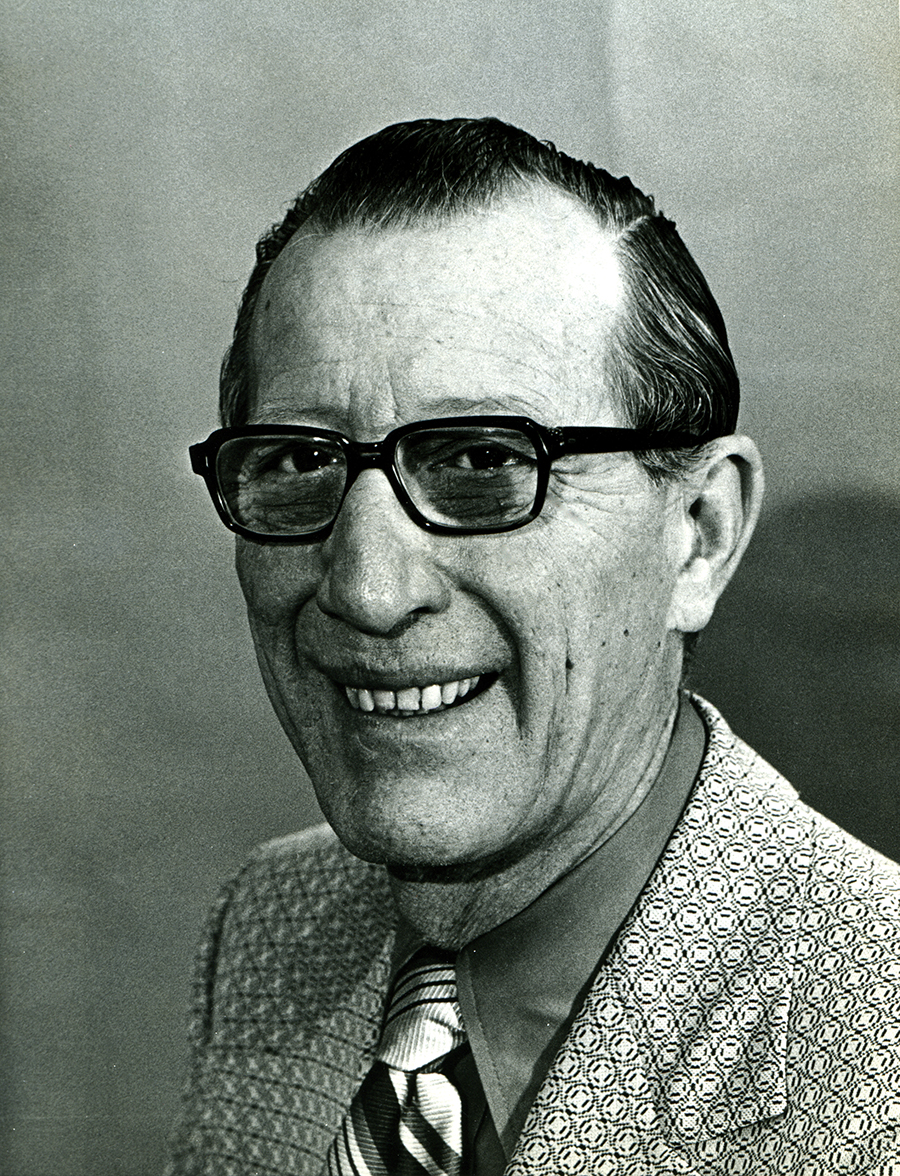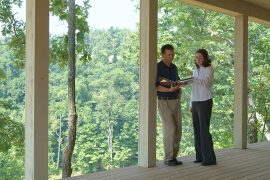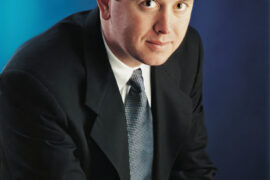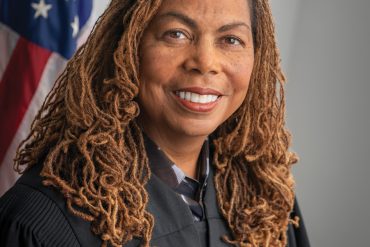A Huntington icon who was the most colorful and dedicated citizen of his era.
By James E. Casto
HQ 64 | WINTER 2008
Even though Harold Frankel spent the last 20 years of his life in Florida, Huntington has never forgotten his trademark grin and the seemingly boundless energy, enthusiasm and optimism he threw into everything he did. And those who knew him best say he never forgot Huntington.
Frankel is remembered for his accomplishments in both business and politics.
In business, he took over operation of his father’s popular clothing store, branched out into the appliance business, established a highly successful Holiday Inn on U.S. 60 East and then invested everything he had – and everything he could borrow – in construction of a new downtown hotel, the first built in the city in decades. The hotel has had its share of ups and downs over the years but remains a visible testimony to Frankel’s faith in the future of Huntington.
In politics, Frankel was a member of Huntington City Council for a remarkable 16 years, served four one-year terms as mayor under the city’s former council-manager form of government, and was Cabell County sheriff for four years.
As mayor, the always-colorful Frankel delighted in the ceremonial aspects of the post. No politician, sports figure or other celebrity could quietly slip into town if Frankel knew he or she were coming. He picked them up at the airport, stuffed them into the backseat of his Lincoln convertible and carted them off to town in an impromptu parade, complete with a police escort, sirens blaring. And, of course, when Miss or Mr. Celebrity left town, they’d be clutching an official Key to the City. Frankel bought ’em by the dozen.
Previous sheriffs had been perfectly content to wear a coat and tie like any businessman. Not Frankel. Elected sheriff, he ordered himself a fancy white uniform with enough gold braid to gladden the heart of a South American dictator.
Veteran Huntington sports columnist Ernie Salvatore was Frankel’s long-time friend. Here’s Salvatore, his tongue only slightly tucked in his cheek, describing Frankel’s arrival at a local sporting event: “Harold’s grand entrances … were as colorful as they were impeccably timed. Dwindling minutes before an opening kickoff, tip off, starting gun or a boxing bout, there he’d come, dressed in a tailored getup, or casuals, sometimes wearing a big white hat with two holstered six shooters he couldn’t hit the floor with, strapped to his side. Now he was the Sheriff of Cabell County on a one man parade. Without a horse. Striding the sidelines, in full view of everyone, waving to friends, real or imagined. A ready smile. Hands outstretched. The consummate actor, doing quite an act.”
But the flamboyant Frankel had a serious side. Under the council-manager form of government, the mayor had no more power than any other City Council member. Nonetheless, Frankel threw himself into the job.
Former City Clerk Mary Neely recalls: “He would go through the city early in the morning and take notes about trash in the alley and things that needed fixing. He would give me the notes and tell me if I got them typed up by noon, he would buy me lunch. He was a wonderful man.”
It’s hard to name a civic group Frankel wasn’t part of. He was on the board at Cammack Children’s Center for 38 years and the St. Mary’s Hospital board for 36 years. He was president of the West Virginia League of Municipalities and the West Virginia Sheriffs’ Association. Over the years, he helped raise untold thousands of dollars for the United Way, the Red Cross, the Cabell County Cancer Society, the Huntington YMCA, the March of Dimes and a host of other causes.
Proud of his religious heritage, Frankel served Ohev Sholom Congregation in a number of posts and was honored by Prime Minister Yitzhak Rabin for his efforts on behalf of Israel Bonds.
As sheriff, Frankel was often on the job with his deputies. When three young Huntington boys disappeared, a 22-hour search proved fruitless. Frankel, acting on a hunch, opened the door of a large refrigerator in the cafeteria at the boys’ school. One of the boys was still alive and tumbled out, falling into the sheriff’s arms.
When he decided to open a Holiday Inn in the city’s downtown, Frankel could have built it at any of several possible sites. But from the first, his family pride dictated that there was only one possible location for the new hotel – the 1000 block of 3rd Avenue, the same block where Frankel’s Credit Clothing was once a fixture of early Huntington.
Born in Peoria, Illinois, in 1916, Frankel was just three years old when his parents, Abe and Tillie Frankel, moved to Huntington, where the elder Frankel opened his store at 1033 3rd Avenue. Young Harold took over running the store in 1938.
The glib, outgoing Frankel was a natural born salesman – and when he opened the Holiday Inn on U.S. 60 he quickly demonstrated that he was just as adept at selling hotel rooms as he had been at selling clothes and appliances. In addition, Harold and his wife Dodi, his partner in both marriage and business, made the hotel’s Polynesian style supper club, the Makiki, a highly popular local nightspot.
With the advent of the city’s downtown urban renewal project, Frankel saw an opportunity to build a second Holiday Inn. He set to work with his characteristic energy and optimism, but what he envisioned as a source of civic pride soon became a long-running local soap opera. Midway through construction, work came to a halt when the hotel’s contractor went bankrupt. Next came a flurry of lawsuits between Frankel, other investors and the insurance company that wrote the construction bond on the project. While the lawyers argued, the building sat uncompleted. Some people were convinced it never would be.
Finally, new financial backing enabled Frankel to finish and open the hotel in 1975 – more than a year late and several million dollars over budget.
The 208-room hotel was a showplace. Its highlight: The Club Pompeii, a bar and lounge done up in Roman fashion, complete with toga-clad waitresses, a chariot straight from the movie “Cleopatra” and a 20-foot high volcano that “erupted” every hour, with a rumbling roar, clouds of smoke and make-believe lava.
But the mountain of debt that went into financing the new Holiday Inn topped even the volcano. The steadily worsening financial woes ultimately forced Frankel out and the hotel shut its doors. It remained closed for more than a year until a group of local businessmen came forward, purchased it and reopened it as a Radisson. Recently, the hotel underwent another name change. It’s now the Pullman Plaza Hotel, a name selected to complement the nearby Pullman Square development.
In 1982, Harold and Dodi left Huntington and moved to Cape Coral, Florida, where they earned real estate licenses and operated a real estate brokerage firm.
In 1997, the City of Huntington Foundation named Frankel to the Greater Huntington Wall of Fame in recognition of his “tireless activities (that) substantially improved Huntington’s image and brought increased pride to the Jewel City.”
Frankel died in Florida in 2002. He was 85.





